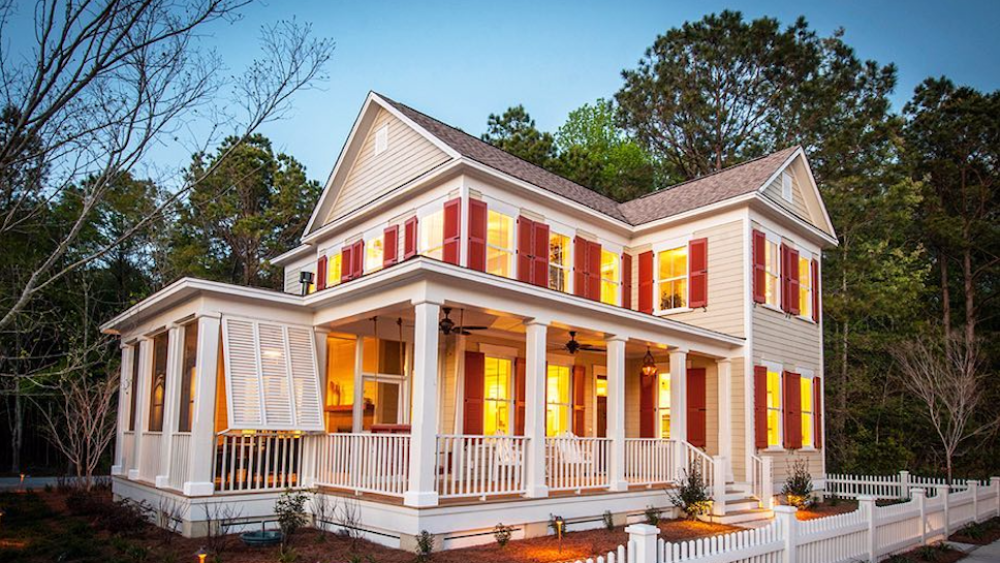7 steps to buying your first home 🏡
Buying a home is one of the biggest commitments you’ll ever make– so you need to make sure you’re ready before taking the plunge.
The first order of business in prepping to buy a home? Knowing what it means to be prepared. There’s a lot that goes into the home buying process. To help you navigate it all, we’ve broken it down into 7 easy-to-follow steps.
1. Do your homework.
Consider the additional costs you’ll incur in owning a home vs. renting one. Making a mortgage payment vs. paying rent may seem ideal for a couple of reasons:
- In many cases, your monthly mortgage payment could be equal in cost or even cheaper than your current monthly rent
- Instead of paying a rent bill + never seeing that money again– making a mortgage payment will count as equity toward actually owning your home
However, owning a home means making additional payments that may typically covered be covered in your rent payment, such as:
- HOA fees
- Maintenance + repairs
- Homeowner’s insurance
- Property Tax
- Utilities (electricity + gas, water, internet, trash, etc.)
Still want to buy a home? On to step two.
2. Meet with a mortgage lender through a bank or mortgage firm to determine what you can afford.
This way, you don’t waste time searching for homes that are too far out of your financial reach.
The best way to find the right lender is through word of mouth. Ask friends with home-buying experience (or experience in the real estate industry). If you’ve already got a real estate agent lined up, consult them.
Together, you + the lender will calculate the ‘nitty gritty’– a.k.a. everything you can expect to pay, from one-time fees to monthly costs. They’ll also be able to let you know whether you are financially prepared to buy a home– or if you’ve still need to get your ducks in a row.
What you’ll need to bring to the meeting:
- Two of your most recent annual tax returns
- Recent pay stubs
- Bank statements from the past 2-3 months
What to expect:
- The loan officer will likely run a credit check + determine your credit score
- They will use your score, along with other relevant financial information, to calculate the approximate amount of the loan you qualify for. This is called “getting prequalified” for a loan.
Pro tip: If you’ve already done some thinking about your ideal price range + neighborhood, let your lender know. Bonus points if you bring in a copy of a listing that closely matches what you’re looking for.
Why does this help? Because the home you can afford in one neighborhood may be drastically different than what you can buy in another (due to factors like county taxes + flood insurance– which can vary greatly around the Lowcountry). Having this info handy will get you more accurate results during your meeting.
3. Narrow down what you’re looking for– and what you can afford.
This is where you get to play ‘House Hunters.’ Pinpoint exactly what you’re looking for– but make sure there’s room to breathe– in case you can’t afford your absolute dream home.
Factors to consider:
- Neighborhood
- Type of home (i.e. single-family home, townhome, or condo)
- Amenities + features that matter
To make this step easier, print out the following checklists provided by Stanley Martin Homes. They can help you determine where you’re willing to be flexible and where you gotta have your way.
Pro tip: Print out a few copies of these forms (even more if you’re buying a home with your spouse or family). You can figure out what’s most important to everyone involved– as it may take a few tries to reach a consensus.
Features that matter
Amenities that matter
Thinking you would rather just build your own home? Stanley Martin Homes offers a variety of floorplans designed for the way you live and with many of the amenities + features you are looking for right in Charleston.
4. Find a real estate agent.
Don’t be afraid to do a bit of speed-dating in order to find the right agent. You’ll want to look for someone who:
- Knows the market where you’re house hunting inside + out
- Has experience (duh)
- Asks you plenty of questions to get an idea of what you want in the way of a house, neighborhood, etc.
What a real estate agent will do for you:
- Check the MLS (multiple listing service–a.k.a. a huge database of real estate listings) + send you the listings that fall in line with what you’re looking for.
- Help you make an offer once you’ve found a home you want to buy (this involves filling out important paperwork)
- Assist you in obtaining the right financing (although you’ve already gotten prequalified at this point, there’s a chance more legwork will need to be done)
- Facilitate + advise you when it comes to negotiations between you + the seller.
5. Sign the contract.
Once you’ve found the home you’d like to place an offer on, your real estate agent will work to draw up a contract and have both parties sign.
In a fast-moving market like CHS, you’ll want to make this happen quickly– but keep in mind that it is binding.
The contract may include certain stipulations– such as who gets to choose the closing attorney, or what the home inspection entails. You’ll want to talk with your real estate agent to make sure they properly explain all the fine print.
6. Find a good real estate attorney.
DYK that in South Carolina, the buyer is legally entitled to the right to pick an attorney?
Along the way, you’ll likely encounter sellers, developers, or lenders who prefer to use their own attorney– and may event offer discounts + incentives to sway you to do so.
So, what’s the perk of picking the lawyer? If it’s your lawyer, they will have your best interest in mind. Having a legal expert at bat for you may cost you upfront, but could save you major $$$ in the long run by making sure nothing goes wrong.
7. Find an inspector + an insurance agent.
To finalize your home deal, you need two final ( + equally important) things: home insurance + a home inspection.
Your lender, lawyer, or real estate agent may be able to help you find the insurer. You can also typically bundle it with your existing policies, like car insurance.
Last but not least, you’ll need to get your future dig inspected. In some case, the terms of your contract could even depend on the home getting a passing grade during its inspection.
After that, if all goes according to plan, it’s time to close on the home + get your keys to move in. 🔑
And, before you ask: Sorry– as much as we’d love to, the CHStoday team is unable to help you pack up + move all of your stuff.
Want to keep researching before pulling the trigger on a new home? Read our previous discussions of the local housing market:
- Rising home prices in Charleston
- Affordable housing programs + solutions
- The cost of living in Charleston
If you’re not ready to buy a home, but want to keep fantasizing– check out our roundup of dream homes in CHS. Warning: they’re kind of expensive… unless, of course, $12 million is cheap to you.
– Jen










